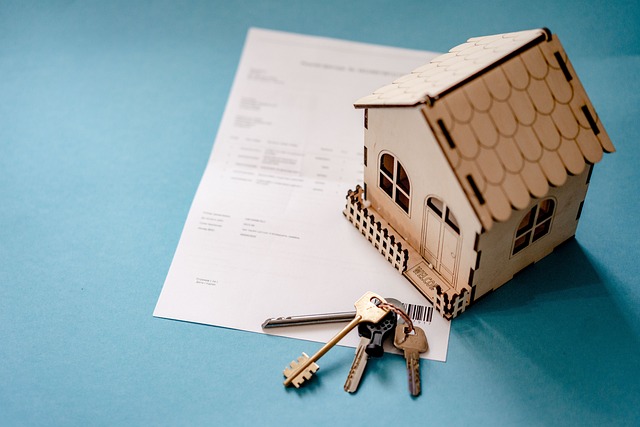Property insurance is a vital risk management tool for small businesses, protecting against financial losses from asset damage or destruction. By understanding specific needs, including asset value, regional risks, and financial capabilities, business owners can choose tailored policies covering buildings, inventory, equipment, and liability. A crucial strategy for business continuity, it safeguards investments, minimizes downtime, and maintains stability in the face of unforeseen events like fires, thefts, natural disasters, or accidents. Selecting the right provider involves comparing multiple insurers, assessing policy terms, and exploring add-ons for specialized protection, while reviewing client testimonials and understanding each provider's offerings. Properly comprehending policies helps avoid gaps in coverage for high-risk events and ensures businesses are prepared to manage unexpected disruptions, fostering resilience and financial security.
“Protecting your small business with comprehensive Property Insurance is a strategic move that can safeguard your investment and ensure resilience against unforeseen events. This article guides you through the essentials of Property Insurance, highlighting its significance for business continuity. We’ll explore key components, from coverage types to provider selection, helping you navigate potential risks effectively. Learn about common exclusions, optimal benefits, and best practices for maximizing protection. Understanding Property Insurance is pivotal for a secure business future.”
Understanding Property Insurance for Small Businesses

Property insurance is a crucial component of risk management for small businesses, offering protection against potential financial losses stemming from damage or destruction of business property. This type of insurance covers buildings, inventory, equipment, and other assets essential to the day-to-day operations of a company. In the event of fire, theft, vandalism, or natural disasters, property insurance provides the means to repair or rebuild, ensuring the business can continue functioning with minimal disruption.
Small businesses should understand their specific needs when considering property insurance policies. This includes evaluating the value of their assets, assessing potential risks in their location, and deciding on coverage limits that align with their financial capabilities. By carefully reviewing policy options, small business owners can secure comprehensive property insurance tailored to protect their investments and safeguard their future.
Why Property Insurance is Crucial for Your Business

For small businesses, property insurance serves as a cornerstone of risk management and financial protection. It’s not just about safeguarding your physical assets—like buildings, equipment, and inventory—but also about ensuring business continuity in the face of unforeseen events like fires, thefts, or natural disasters. Without adequate property insurance, a single event could cripple your business, leading to loss of revenue, increased operational costs, and even permanent closure.
Think of it as an investment in peace of mind. Property insurance provides financial coverage that helps you recover and rebuild after a qualifying event. It allows you to replace or repair damaged or stolen property, minimize downtime, and maintain the stability and reputation of your business. In today’s competitive landscape, where disruptions are common, having robust property insurance is no longer an option—it’s an essential component for the long-term success of any small enterprise.
Key Components of a Comprehensive Property Insurance Policy

When considering property insurance for your small business, it’s crucial to understand the key components that make up a comprehensive policy. Firstly, Property Insurance protects your physical assets, including buildings and structures, from damage or destruction due to events like fire, storms, or vandalism. This coverage ensures you can rebuild or replace these essential resources if they’re lost or damaged.
Secondly, businesses also benefit from coverage for their contents, which includes inventory, equipment, and furniture. This aspect of Property Insurance shields your investments from loss or theft. Additionally, many policies include liability protection, shielding your business from financial harm if someone is injured on your premises or if you’re found legally responsible for damages to others’ property.
How to Choose the Right Property Insurance Provider

Selecting the right property insurance provider is a crucial step for small businesses. Begin by comparing several insurers, examining their coverage options, and understanding the specific needs of your business. Consider factors such as the type of property, value of assets, potential risks, and the level of customer service offered.
Check reviews from other clients to gauge the reputation of each provider. Ensure that the policy terms and conditions align with your expectations and legal requirements. It’s also beneficial to inquire about add-on policies or endorsements that can provide tailored protection for unique business assets or operations.
Common Exclusions and Considerations in Property Insurance

Many small business owners often overlook certain aspects when purchasing property insurance, leading to potential gaps in their coverage. It’s crucial to understand that policies typically have exclusions, which are specific circumstances or events not covered under the policy. These can include natural disasters like floods or earthquakes, depending on the location and type of policy. For instance, standard property insurance usually doesn’t cover business interruption caused by these events, meaning you may face financial losses if your operations cease during a covered disaster.
Additionally, considerations such as the value of your assets, the type of business you operate, and the specific risks associated with your location play a significant role in determining the scope of coverage. For example, businesses dealing with valuable inventory or equipment should ensure their policy adequately protects these assets from theft, damage, or loss. It’s essential to review the policy documents carefully and consult insurance experts to tailor the coverage to your business’s unique needs.
Maximizing the Benefits of Property Insurance for Small Businesses

For small businesses, maximizing the benefits of property insurance is key to ensuring resilience and financial security. Beyond covering the physical assets of your business, including buildings and inventory, property insurance can offer valuable protection against liabilities arising from accidents or damages on your premises. This includes legal fees, medical expenses, and potential compensation claims. By understanding these comprehensive protections, small business owners can make informed decisions when choosing their insurance policies, ensuring they are adequately prepared for unforeseen events that could disrupt operations.
Additionally, property insurance plays a crucial role in facilitating business continuity by providing financial backing during periods of repair or rebuilding after disasters like fires, floods, or storms. This enables businesses to quickly resume operations, minimize downtime, and protect their reputation among customers. By recognizing the multifaceted advantages of property insurance, small business owners can unlock its full potential, creating a resilient foundation for long-term success and growth.
